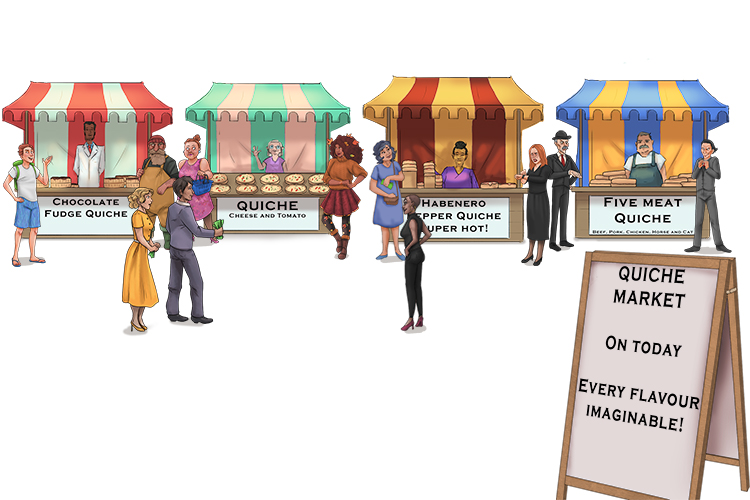Niche Market – Selling to a small, well defined segment of the population
(Pronounced neesh mar-kit)
To remember what niche market means use the following mnemonic:
If you need quiche, this market (niche market) is for you. It was highly targeted at a small percentage of the population.

Companies which focus on niche markets offer specialized goods or services. This strategy can be a benefit due to the expertise and innovation built in a small sector, leading to high levels of trust from potential customers. However, involvement in a niche market can also be a risk, because if that niche product is copied by a very large company that can undercut you in price, it may cause an irreversible downturn in business.
An example of a company that exploited a niche market to become successful is the US supermarket chain Wholefoods. Originally opened as a small health food store in 1980, it appealed to a small but dedicated clientele. The demand for premium organic foods such as those sold at Wholefoods has grown since, but the market is still relatively small and targeted at more affluent, health-conscious people. Despite a much smaller amount of customers than cheaper supermarkets, the higher priced products result in a higher spend per purchase and increased revenues.
Another example of a company operating in a niche and highly targeted market is Lefty’s, the store that only sells products catered towards left-handed people who make up between 10% and 12% of the population. This store sells a much wider range of products for left-handed people than would ever be found in a regular store, and so attracts people who cannot find the products elsewhere. The company has been running successfully since 1978, benefitting from the fact that there will always be new left-handed customers.




